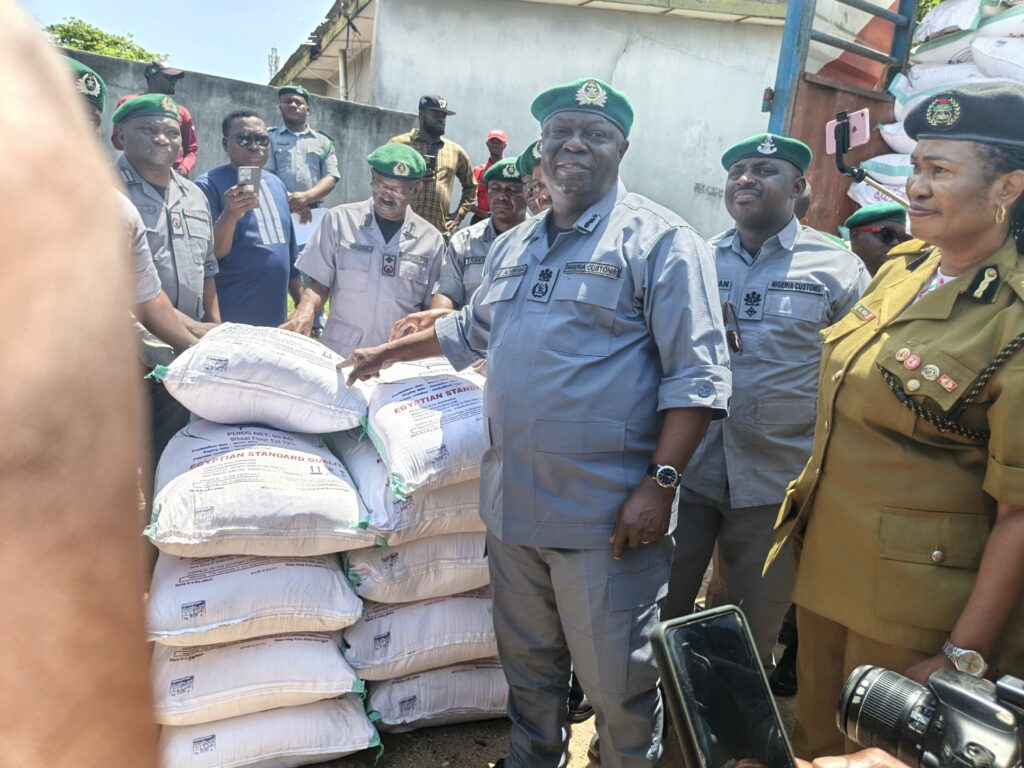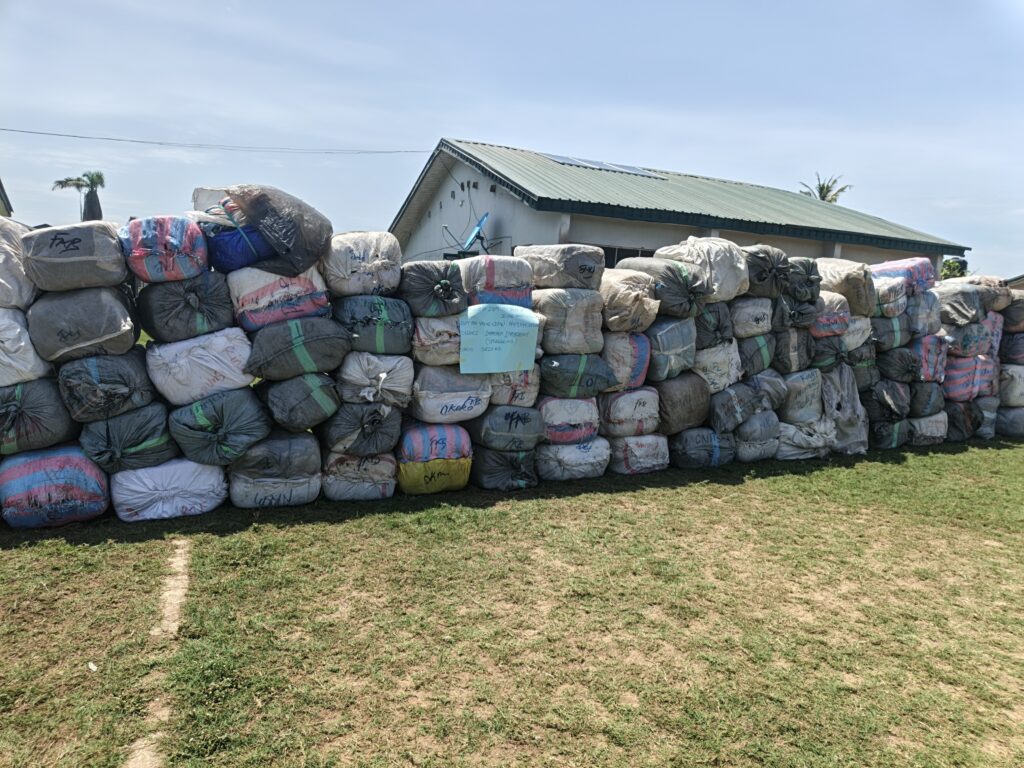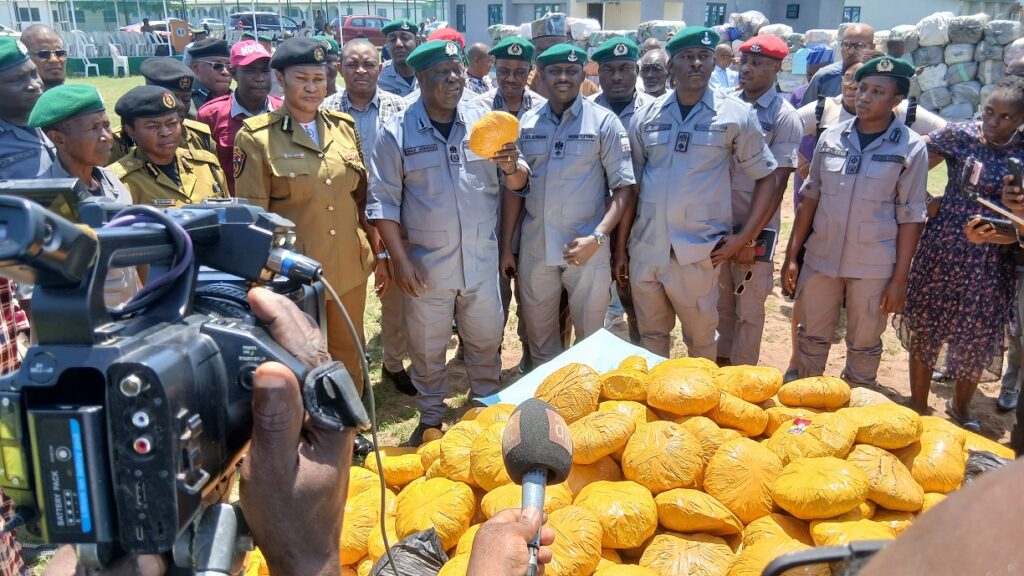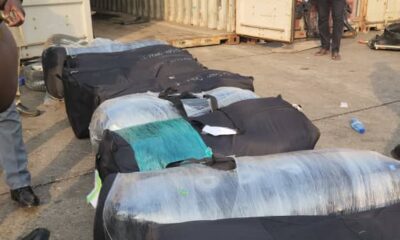Customs Report
‘Economic Resource Diverted Into Smuggling Within Lagos–Abidjan Corridor, Waste’ — Comptroller Adenuga

BY FUNM I ALUKO
In a bold declaration that underscores the economic and social cost of illicit trade, Comptroller Wale Adenuga of the Nigeria Customs Service, Seme Area Command, has described smuggling as a “colossal waste” of economic resources that could otherwise empower thousands of small businesses and create sustainable jobs.
Speaking during his maiden media briefing at the COWA Complex, Seme Border last week, Adenuga emphasized the Command’s renewed commitment to suppressing smuggling and facilitating legitimate trade along the Lagos–Abidjan corridor.
“Our position is clear. Any economic resource diverted into smuggling will be a colossal waste; it will be better to channel such resources into legitimate business that could empower thousands of SMEs and create jobs”, he said.

0-4064×3048-0-0-{}-0-12#
Warning that smuggling will continually meet tactical resistance with dire consequences, Adenuga disclosed that between September 1 and October 9, 2025, the Seme Area Command recorded a series of high-impact seizures, reflecting the Command’s zero-tolerance stance and intelligence-driven operations.
He explained that the total Duty Paid Value (DPV) of intercepted contraband stood at a staggering ₦1.99 billion within 30 days of assuming control of the command.
He listed seized items within the period under review to include 5 trucks loaded with 10,000 bags of expired flour from Egypt, intercepted in collaboration with NAFDAC, with DPV of ₦1.21 billion; 1,104 parcels of Cannabis Sativa (Marijuana); 120 packs of Tramadol (120mg), with two suspects handed over to the National Drug Law Enforcement Agency (NDLEA); 2,043 bags of foreign parboiled rice (50kg each); and 150 bales of second-hand clothing.


0-4064×3048-0-0-{}-0-12#
Others are 169 bottles of codeine-laced cough syrup plus five (5) vehicles being the means of conveyance. Adenuga warned of the grave health risks posed by expired food products and illicit drugs, noting that such items not only endanger public health but also erode consumer trust and undermine local industries.
Despite the aggressive enforcement, the Command also achieved remarkable progress in trade facilitation. In September alone, revenue surged by over 182%, climbing from ₦531 million in August to ₦1.5 billion. This leap reflects the impact of streamlined procedures and enhanced inter-agency coordination.
On the export front, the Command facilitated the movement of 53,989.46 metric tonnes of non-oil goods—including agricultural produce and manufactured items—with a Free on Board (FOB) value of ₦7.97 billion. The Nigeria Export Supervision Scheme (NESS) fees generated totaled ₦39.8 million, reinforcing the corridor’s role as a strategic trade artery under the ECOWAS Trade Liberalization Scheme.
In line with the Comptroller General’s modernization blueprint, the Command hosted two major stakeholder engagements in early October. These forums brought together security agencies, traditional rulers, and Customs counterparts from Benin Republic to address trade bottlenecks and harmonize border operations.
Resolutions included eliminating multiple checkpoints and extortion practices, ensuring seamless movement of goods and persons without compromising national security.
Comptroller Adenuga concluded with a pledge to balance revenue generation, trade facilitation, and national security. “Together with our partners and stakeholders, we are building a smarter, safer and more prosperous border corridor,” he affirmed.
With a blend of enforcement grit and reform-driven leadership, the Seme Area Command is fast becoming a model of Customs excellence—where economic resources are protected, trade is facilitated, and smuggling is treated as the national sabotage it truly is.
































